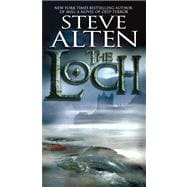
Note: Supplemental materials are not guaranteed with Rental or Used book purchases.
Purchase Benefits
A native of Philadelphia, Steve Alten earned a Bachelor’s degree from Penn State, a Masters from the University of Delaware, and a Doctorate from Temple University. He is the author of the bestselling MEG series, Domain series, and Goliath. Steve now resides in South Florida.
The New copy of this book will include any supplemental materials advertised. Please check the title of the book to determine if it should include any access cards, study guides, lab manuals, CDs, etc.
The Used, Rental and eBook copies of this book are not guaranteed to include any supplemental materials. Typically, only the book itself is included. This is true even if the title states it includes any access cards, study guides, lab manuals, CDs, etc.